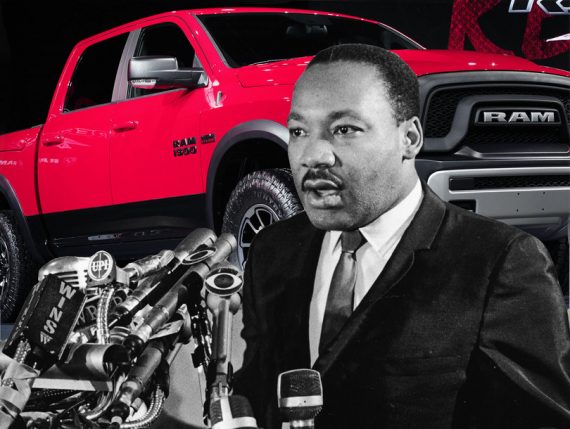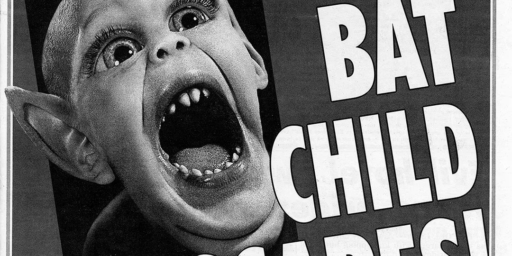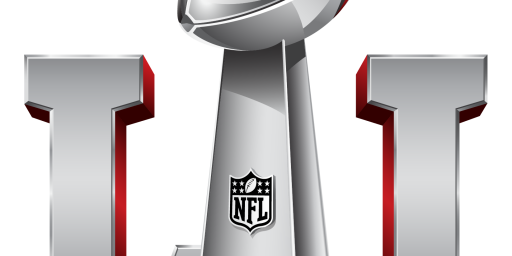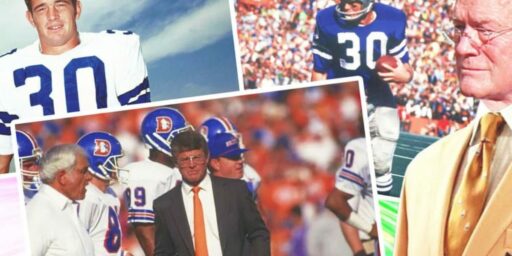Specks, Logs, and Dr. Martin Luther King
In a healthy democracy we need not agree, nor must we finally even respect one another's objects of devotion. But we should exercise a salutary measure of mutual forbearance and be willing to acknowledge that no side has a monopoly on either truth or justice.

I proudly stand for the national anthem, but I don’t get worked up about folks who don’t. Last I checked we live in a free country and it’s (still) within our rights to protest. Nor I do feel any compulsion to scrutinize these protesters’ reasons or to question their patriotism. Stand. Sit. What difference does it make? How does it affect my self-interest? So frankly I do not understand people who do get worked up about the NFL protests. Or, that is, I didn’t understand these folks until I took note during the Super Bowl of my own self-righteous feelings that something sacred had been desecrated—or at least disrespected—by the use of Dr. Martin Luther King Junior’s recorded voice to sell Ram trucks! How DARE they! How shameful! My own Super Bowl crew was divided on the commercial, but I took a firm stand—the righteous stand. The commercial was flat-out wrong.
Self-righteous anger at those who kneel for the national anthem. Self-righteous anger at corporations that use MLK’s voice to hawk trucks (presumably with the permission of representatives of the King estate). In at least one decisive sense it’s the same thing. All of us are wired to set aside select persons, places, artifacts, and principles as sacred and worthy of our highest respect and devotion. What those objects of respect are, of course, vary between people and also within our own lives over the course of our lives. All of these objects of veneration are, from an outside perspective, curious or puzzling or even silly. But none of us should fool ourselves that we alone are driven by reasoned principle or are free of “irrational” devotion to the sacred. As psychologist Jonathan Haidt reminds us, we’re all self-righteous, or can be on occasion. And depending upon the issue, we’re all “snowflakes,” too. We’d be inhuman monsters if our feelings were unaffected by the judgments of others.
I, no less than many, am forever tempted to remove the speck from others’ eyes without feeling the slightest need to remove the log from my own eye. For me this is perhaps most true in the political arena in large measure because (as everyone rightly points out) our politics have become so severely tribalized. Not just our principles but our biases and prejudices and mistaken judgments are reinforced and even commended by those on our team. We owe it to ourselves as well as to one another to subject our own thoughts to scrutiny. We owe it to ourselves and others to appropriate a measure of intellectual modesty. So long as people are free to think, people will disagree. It would not only be polyanna-ish but downright despotic to expect agreement or consensus. My cherished objects of devotion will not be yours. In a healthy democracy we need not agree, nor must we finally even respect one another’s objects of devotion. But we should exercise a salutary measure of mutual forbearance and be willing to acknowledge that no side has a monopoly on either truth or justice.






In 1996, during Ross Perot’s second presidential run, I remember watching an infomercial promoting his running-mate that year, a little-known economist named Pat Choate. A black man appeared on screen and spoke about the time he met and shook hands with Martin Luther King, Jr. He then talked about the time he met Pat Choate–and the remarkable similarities he noticed between the two men.
I am not remotely making this up. I am not.
While MLK was alive, he was extraordinarily controversial. The FBI called him a communist. Conservatives like to quote him today and have tried to rewrite him as a conservative (despite the thoroughly documented fact that he, like Bernie Sanders today, was an avowed democratic socialist), but you won’t find one conservative in good standing who was supporting him while he was alive–not one. There were Republicans who defended him, of course–Rockefeller Republicans. But movement conservatives–Bill Buckley, Barry Goldwater, Ronald Reagan–uniformly opposed the Civil Rights Movement. Even many liberals were wary (Harry Truman called King a “troublemaker”), and even some of the actual civil rights activists involved in the Freedom Rides and the sit-ins were critical of King (whom they mockingly referred to as “De Lawd”).
But after he died and enough time had elapsed, he attained demigod status. He is viewed with more reverence than just about any US historical figure apart from the Founding Fathers and Abraham Lincoln. One of his nieces goes on Fox News and claims (lies) that her late uncle was a Republican. Conservatives routinely quote his “content of their character” line from his “I Have a Dream” speech, almost certainly the only quote of his they’re familiar with, conveniently wrested from its original context, and showing a complete ignorance of his overall views and outlook.
The recent truck commercial is crass, but no more so than, say, “Abraham Lincoln: Vampire Hunter.” It’s the same trivialization that we regularly encounter in popular treatments of history that turn the familiar figures into superheroes and supervillains, but it’s important to realize that this is the way a lot of people view these topics in dead earnest, and how they can reduce such events as slavery or the Holocaust or the civil rights movement to an opportunity to score points for one’s side.
I think the use of MLK in a truck commercial is in very poor taste. And I generally wouldn’t get very outraged over poor taste. I find Dodge’s problem more amusing than outrageous.
You’re also correct to say
Monopoly no. However, if you claim symmetry I will accuse you of rampant bothsidesism. Both parties are flawed and have ideological blind spots, but one is clearly way more evidence based than the other.
Yes, I found it strange when the ram pickup appeared at the end of the ad, but I also thought it was good to get King’s message across during the superbowl, regardless of what was being sold. The motivation might have been cynical, but if it pulled a few people out of a hateful place, maybe it is ok.
It never a bad time to be reminded of the many reasons we should all be humble. And thank you for doing the reminding today.
Now get a post with the same message put up on, say, GatewayPundit.
Virtually all left/liberals look on ideology as instrumental. The reason we reverence Dr King is because evoking his memory is likely to move people toward the goals he and we embrace.
Virtually all right/’conservatives’ look on their ideology as Revealed Wisdom. The reason they insist upon universal ‘patriotic’ observations is because it is a Categorical Imperative.
Considerable difference. Still, thanks again.
Well said, and I completely agree. What more can I say?